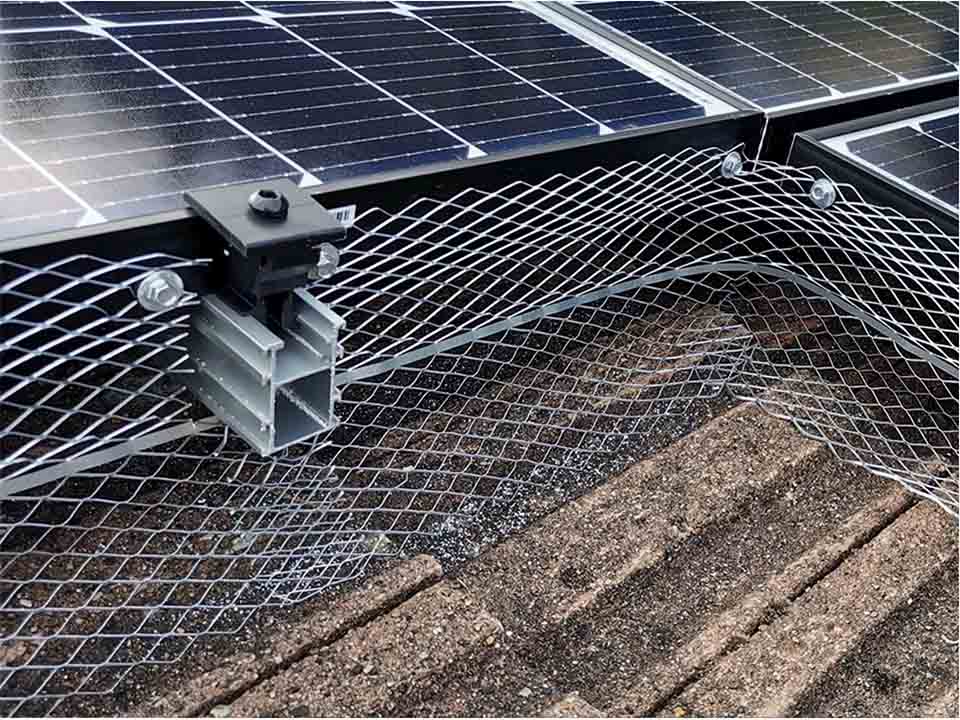Yes, UK homeowners are legally allowed to install solar panels on their own roof. Solar PV systems are generally considered to be “permitted development” rights and won’t require planning permission unless your home is listed within a conservation area, or has other specific restrictions.
You also do not need to be a registered installer to physically mount panels on your roof and the components involved. Electrical work will need to comply with the UK wiring regulations (BS 7671), and building control regulations if relevant to the installation. Connecting to the National Grid (or exporting energy back to the grid via the Smart Export Guarantee) will also require your system to meet Microgeneration Certification Scheme (MCS) standards, which can be difficult for most DIY systems to achieve.
What Does a DIY Solar Installation Involve?
Solar installation is more involved than simply bolting a few panels to your roof. It’s an intricate process which includes:
- Site assessment: Measuring solar potential, assessing the best placement and angle for panels, and understanding shading issues.
- System design: Selecting the type and quantity of panels, inverters, wiring, and battery storage (if using).
- Roof mounting: Fixing panels to the roof securely while avoiding leaks or structural damage.
- Wiring and connection: Linking panels to the inverter and to the electrical supply.
- Testing and commissioning: Making sure the system is working properly and safely.
- Notifications and paperwork: Registering with your local DNO, obtaining MCS certification (if necessary) and potentially filing for building control approval.
This involves technical expertise, working with electrics, working at height and an understanding of the building regulations.
The Risks of a DIY Solar PV System
Saving money may seem appealing, but the potential risks involved make DIY solar a high risk option:
- Safety Risks
Working on roofs and with electrical equipment is very dangerous for the untrained. Falls from ladders and roofs are one of the most common DIY injuries in the UK. - Insurance Issues
A DIY solar system will likely not be covered by your home insurance. A DIY installation could potentially void your insurance completely if it causes damage or fire. - No MCS Certification
Without MCS accreditation, you will not be able to receive the Smart Export Guarantee (SEG) payments for energy exported back to the grid. This will cost you potentially hundreds of pounds per year in lost savings. - Performance and Reliability Problems
Companies like Eden Power use specialist equipment to monitor solar output, maximise efficiency, and make sure your system is built to last. A DIY installation could easily underperform compared to professional installations due to incorrect design, poor electrical connections, panel shading, and more.
Why Installing Solar Panels with a Company Like Eden Power is Best
We get that fitting your own solar panels seem like an attractive option, but here at Eden Power, we also know the realities of what is involved to do a proper job. Working with us means:
Expert System Design and Installation
We design each system to match your individual home, energy usage, and budget for the most efficient set up.
Hassle-Free Peace of Mind
With our certified, trained installers working to the highest UK standards, you can rest easy knowing your roof is not at risk and your solar system will work for years to come without issues.
Eligibility for Incentives
Our team is MCS certified which means your system is eligible for SEG payments and access to any additional energy-saving grants or schemes.
Warranties and Guarantees
We back our work with robust warranties and guarantees which cover both the solar components (from the manufacturer) and the installation workmanship. You don’t get that with DIY solar.
Ongoing Customer Support
Solar is an ongoing investment, not a one-off job. We are here to provide ongoing support, maintenance, monitoring, and expert advice to ensure your system is always performing optimally.
Final Thoughts: Is DIY Solar Right For You?
Legally, you can install your own solar panels, and with some research, technical skills and tenacity you can probably do it yourself. But in terms of safety, performance, long-term savings and eligibility for incentives, the bigger question is “should you?”
Leave your solar installation to Eden Power and we’ll do the hard work, regulations, and paperwork for you so you can start saving energy and money as soon as possible, with complete peace of mind.
Want to go solar? Get in touch with Eden Power today to arrange a free, no-obligation quote and let’s power your future the smart way.






